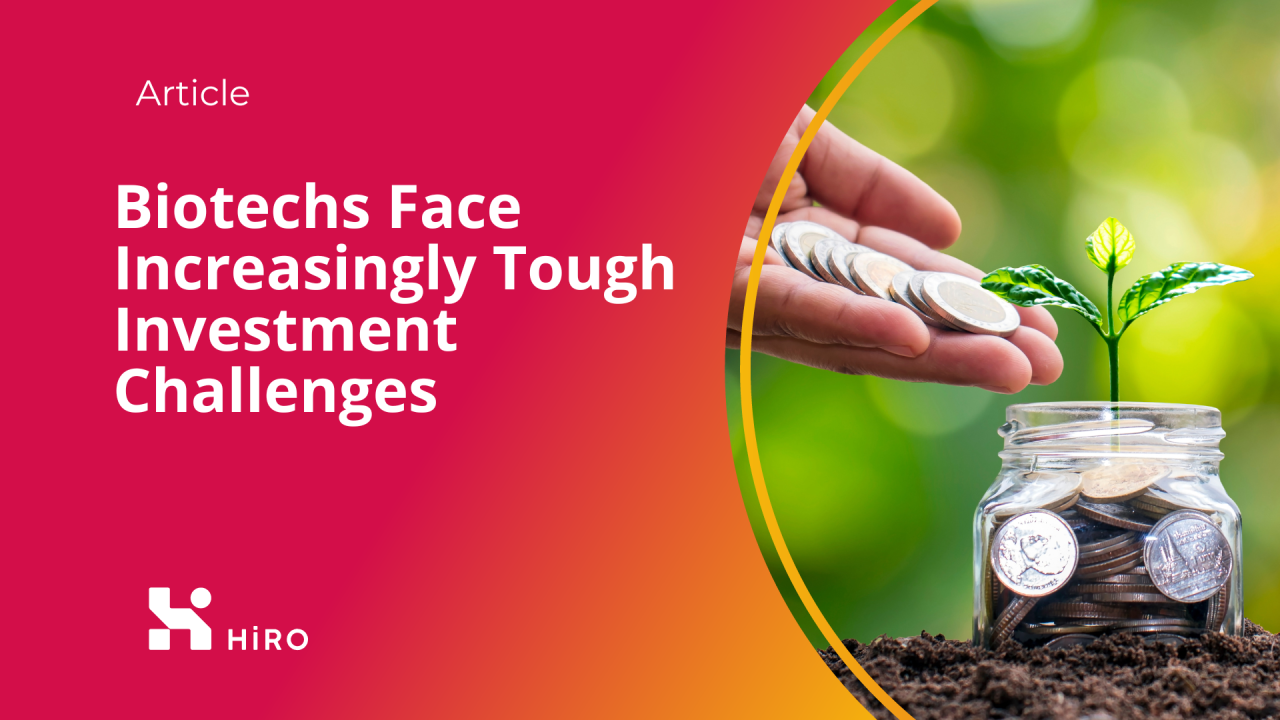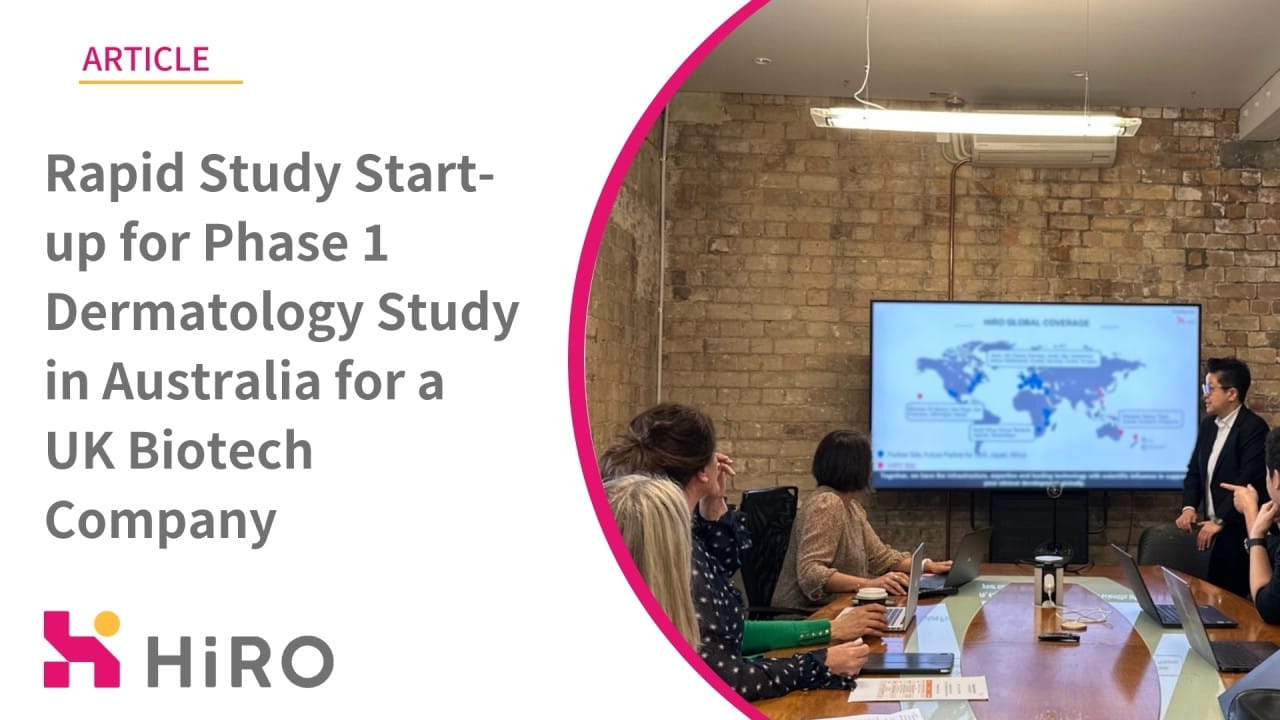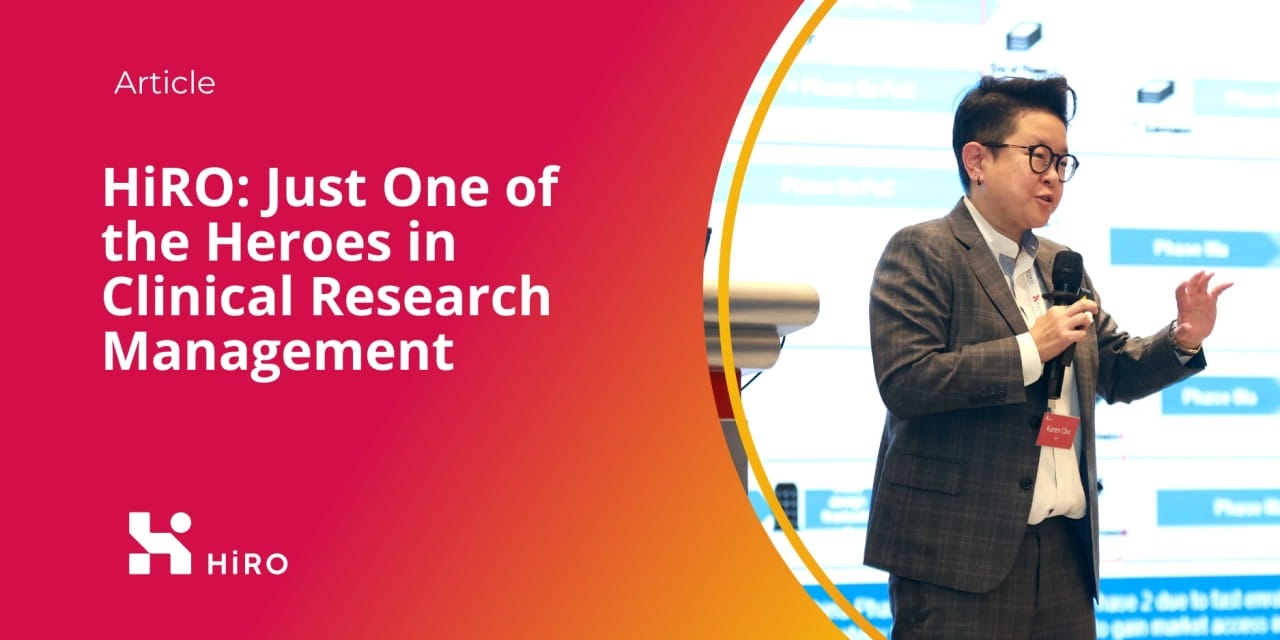Biotechs Facing Increasingly Tough Investment Challenges

The biotech funding environment has undergone significant changes, with investment levels falling and more competition for funds, raising much needed capital investment has become more challenging. Previously thriving avenues such as biotech IPO market, Series A funding, VC capital and capital markets have faced instability, leading to a decline in available investment funds. With more biotech companies than ever before, competition for capital has increased precisely when access to funding has diminished.
This current funding climate requires biotechs to think harder and more strategically to design cost-effective clinical trials to stretch available cashflows to carry them further, as well as understand better how to position themselves attractively to investors when seeking funding.
What investors seek in clinical trials investment
Anyone in the biotech industry, especially at the startup phase, will recognize that, without capital finance, even the most innovative ideas remain just that: theoretically great ideas.
Given that this attracting finance is crucial to move clinical research from the lab to the clinical trial stage, the next hurdle biotechs face is the reality that your research project is one of many ventures competing for investment dollars.
With global capital markets tightening, investors must be discerning, and capital efficiency features highly on their list of requirements when selecting which biotech and clinical trial to fund.
With the end goal being to take the product to market as quickly as possible, investors will be looking for how efficiently their capital will be used to quickly generate high quality, accurate clinical data, and secure commercialization pathways.
Understanding the investor perspective
When funding biotechs, investors look at both the rate of return (commercial potential) and the fastest returns on investment dollars.
Capital efficiency is a key indicator of a company’s ability to manage resources wisely. Investors are going to want to be assured that the biotech they are funding is just as concerned about efficiency as they are.
When looking to attract investors biotechs need to show dedication to cost-efficiency, and it is important to have a plan that demonstrates clear milestones and a well-defined path to commercialization.
Strategies for enhancing capital efficiency
Startup biotechs will benefit from adopting lean development principles, which focus on eliminating waste and inefficiencies to streamline processes, reduce costs, and improve productivity.¹
When applied to the biotech sector as early as possible, significant cost-reducing strategies can be implemented, such as strategic location selection, fully staying on top of compliance and regulatory requirements, investigating the possibility of remote trials, and partnering with the right Clinical Research Organisation (CRO).
Having this plan in place means that high-impact research can be prioritized, and wasteful spending eliminated.
1. Pipeline optimization
Biotech pipelines need to be constantly reprioritized and development strategies optimized to help biotechs stretch their cash to advance their programs in the absence of additional capital investment. To navigate the turbulent times, biotechs will need to continue to innovate, drive efficiency, and bring breakthrough science to patients faster.
2. Location, location, location
As cross-border global clinical trials become more common, the complexity of running these multi-regional projects becomes increasingly challenging. Biotechs need to ensure that their development pathway is both cost-effective and efficient to accelerate time to market.
Ethics and Regulatory timelines and requirements differ greatly across countries and where research is conducted can have a tremendous effect on the cost and timeframes of the clinical trial phase.
Doing research in Australia or New Zealand, as opposed to the US or Europe, can speed up the process significantly, as the regulatory systems are more streamlined. This can shave up to a year off the clinical trial. With each passing day costing money, this is a far more efficient option, both in saving capital investment and getting to market quicker. Some locations, such as Australia, also offer high R&D tax rebates. This, combined with shorter timeframes, will show impressive efficiency in the plan outlining management of capital spend.
When designing a global clinical trial strategy, it is critical for biotechs to have a depth of understanding across both local and global landscapes. Increasingly biotechs are turning to CROs to leverage the breadth of expertise offered by these global partnerships.
3. Leverage technology to enhance clinical trial capabilities
Technology – remote monitoring, virtual visits, wearable devices, and telemedicine can now all play a role in streamlining and enhancing the capital efficiency of clinical trials. This requires access to a global network of vendors. While technology has revolutionized the clinical trial landscape, it still has its challenges, risks, and limitations. Biotechs should not feel daunted by the emergence of new technologies, they just need better partnerships to help them embrace, integrate, and innovate to progress their clinical research.
Choose the right CRO
Partnering with the right CRO is perhaps one of the biggest factors in ensuring a cost-effective and efficient clinical trial.
Being a recent startup themselves, HiRO truly understands the challenges of securing capital investment. Having a team with backgrounds in venture capital means that we understand the investor’s perspective and can provide answers and solutions to the questions that cautious sponsors will inevitably ask, so that our clients are better prepared.
“The HiRO team know the biotech pain points – we’ve been there. Other global CROs focus on tasks. We focus on being part of the team and delivering the best strategy. We work together with biotech to reduce timelines and minimize mistakes”. – Wendy Mach HiRO – VP, Strategy & Partnering Office.
Although securing investment capital can be a daunting process, especially for startups, HiRO supports the entire clinical development pathway and provides the right consulting experts at every stage of your trial.



